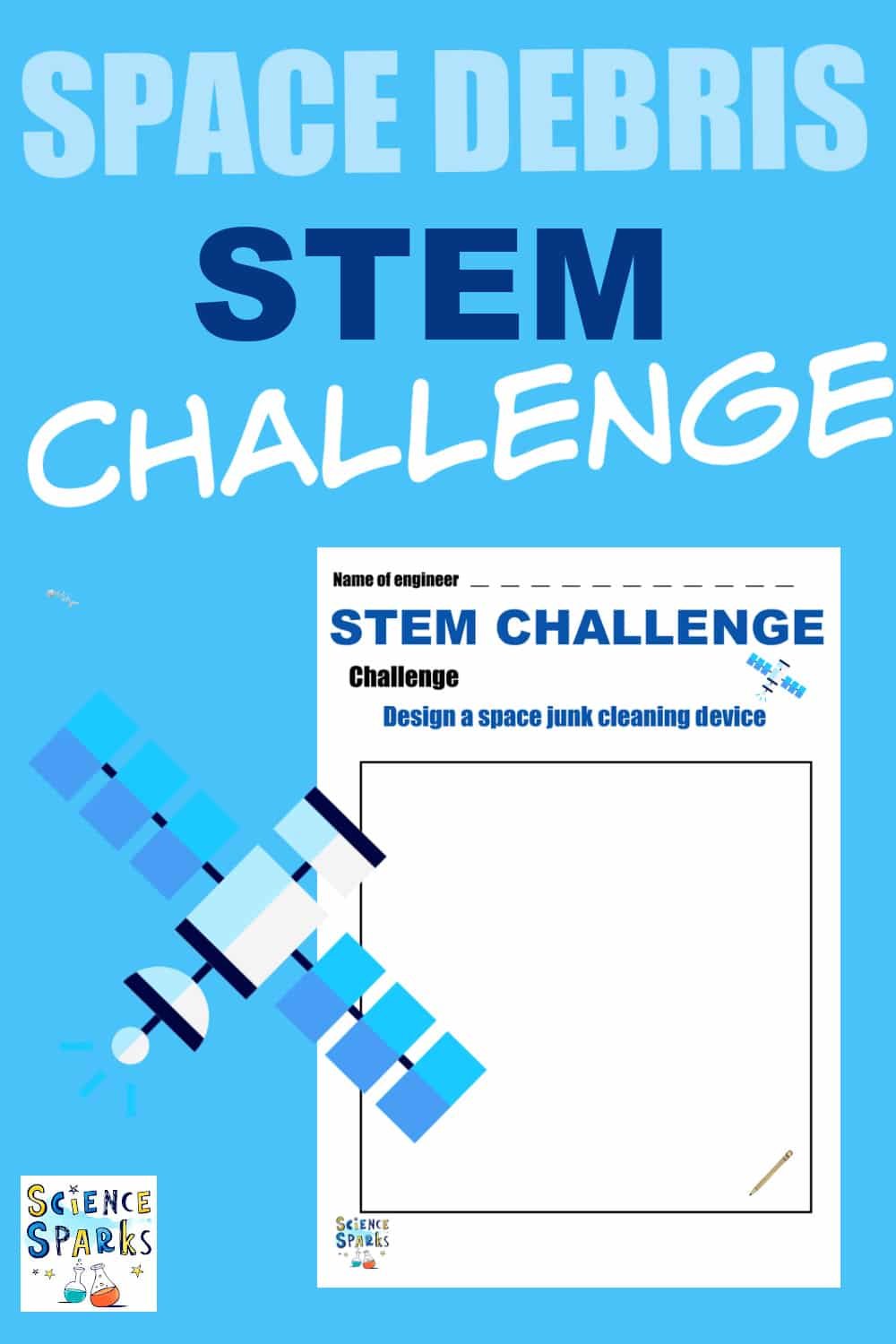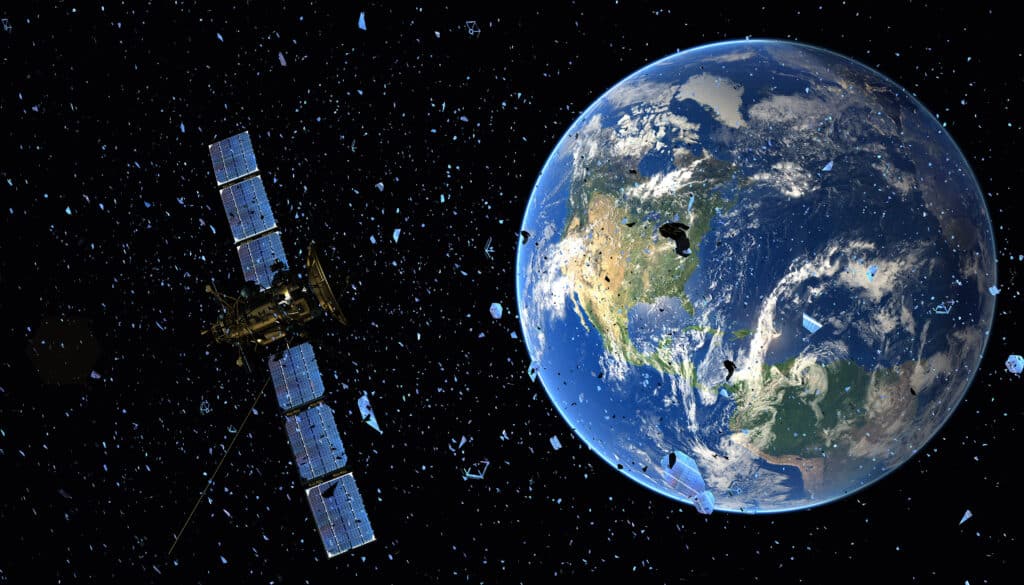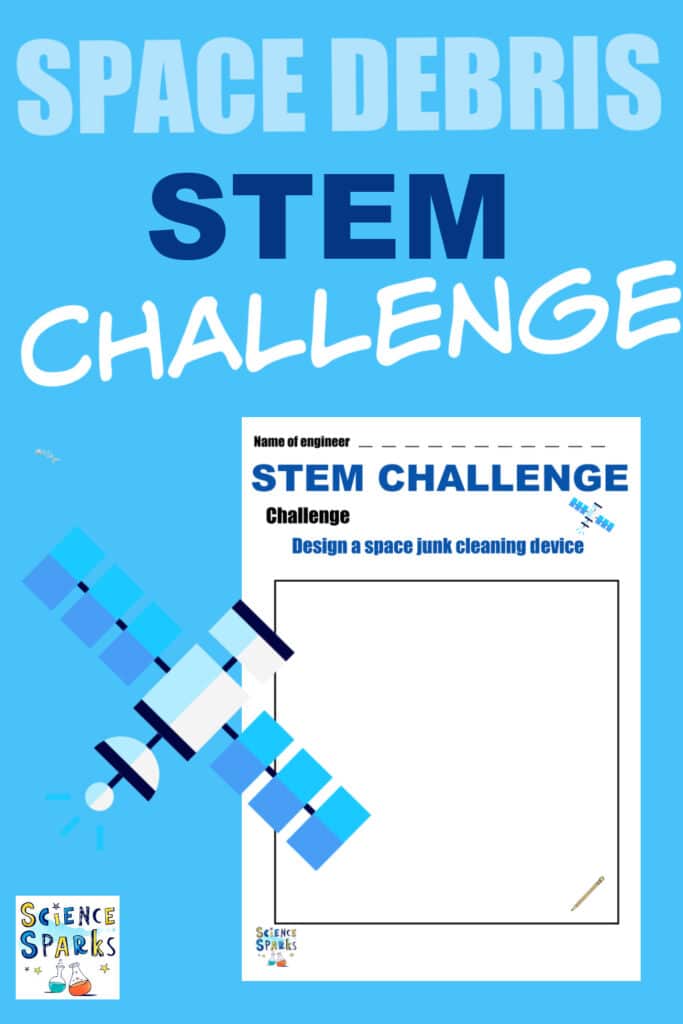
This week, the U.S. government issued its first ever fine to a company for leaving space junk in space. Why is space debris a problem? Space is a pretty big place. The problem is that even a tiny piece of space junk left behind can cause massive damage if it collides with a spacecraft or another piece of debris.
Humans have been launching rockets and satellites for the last 70 years. That’s a lot of time for space junk to accumulate.
What is space debris?
Space debris is anything that has been left behind in space by humans. This includes satellites that no longer work, rocket boosters, and smaller pieces of debris that have fallen off rockets.
Debris in lower orbits often naturally returns to Earth within a few years and burns up in the atmosphere. However, there are some reports of space debris reaching the surface. The more often this happens, the more likely it is to cause damage to humans on the ground.
Debris in higher orbits is a bigger problem as it takes centuries to make its way down to the Earth’s atmosphere. This poses a risk not only to future space exploration but also the risk of collisions increases the more debris is allowed to accumulate.
When collisions between space debris occur, even more debris is created.
There’s also the risk of explosions in orbit from leftover fuel and batteries.

Clean Up Space – STEM Challenge
I’ve created a STEM challenge to encourage children to think about the problem of space debris and how it can be solved. The activity includes three pages to guide children through designing, creating a prototype, and thinking about any potential problems with a space junk-cleaning device before presenting a final version of their creation.
Potential methods of cleaning up space junk
- Launch space debris removing vehicles with huge nets, bags, harpoons or giant magnets to catch space junk and bring it back to Earth or bring it down to a low enough orbit for it to burn up.
- Reducing the speed of satellites to make them naturally drop to a lower orbit.
- A tracking system to track objects over a certain size.
Remember, space junk is travelling very quickly.
What is the Kessler Effect?
The Kessler Effect is a scenario where the number of objects in low earth orbit reaches a level where a chain reaction of collisions occurs, leading to more debris and more collisions. This will eventually create so much debris that it will become very difficult for future rockets and satellites to be safely launched.
If you think about all the ways we rely on satellites for our everyday lives, this would be catastrophic for the modern world.
The Kessler Effect was first proposed in 1978 by NASA scientist Donald J. Kessler.
Find out more
Read about the history of rockets. Did you know the first rocketry experiments were carried out 2,000 years ago?
Humans have left quite a lot of trash on the moon!
Read about the UK Clearspace initiative and the RemoveDebris project.
Don’t forget to take a look at my full collection of space science experiments. You can make and launch rockets, learn about Newton’s Laws of Motion and lots more.

Source articles
ESA – The current state of space debris
Last Updated on October 6, 2023 by Emma Vanstone






